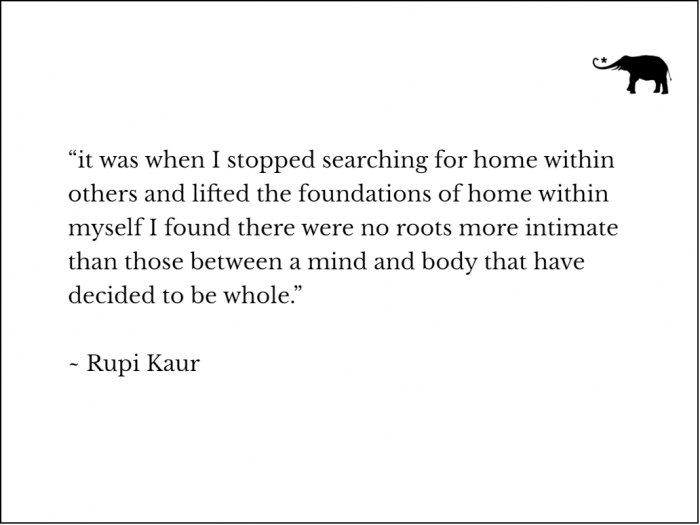“When we treat ourselves with gentleness and kindness, we show others how we want to be treated.”
I didn’t understand this when I was younger.
Many times, I heard it from my mother, but didn’t get it. Somehow, I had this vague notion of what boundaries were and what that meant—but had no ability to enforce boundaries in my dysfunctional family, or even create them for myself.
There was little I would deny someone who asked something of me if I cared about them and wanted or needed them to care about me. I had this dreadful idea that I wasn’t worth someone else’s time, effort, energy, or patience to put up with my own boundaries, time limitations, or my need to say no and not comply.
My self-esteem was so damaged that I felt I wasn’t worth someone sticking around or putting up with my boundaries.
My chronic people pleasing was so pathological that I gave everything away until there was nothing left for me. And that was what felt normal for me.
So many of us have similar experiences, especially women. Society, our communities, and our families show us in countless ways that our worth is directly tied to showing up for and taking care of others.
I received countless signals from my female family members about what it meant to be a good mother, a good wife, and a good daughter. To be any of those things, I had to be caring and kind and to selflessly devote myself to anticipating the needs of my loved ones, and to meet all those needs quickly.
I was never to ask for help myself, as my wants, needs, and desires were beside the point. I stopped listening to the whispers of my heart—my authentic self—because her needs didn’t matter if I was going to be “a good girl.”
These were messages from long ago, that thankfully are going out of fashion now. Now, we know we are entitled to listen to our own needs and desires, and even go out and make them our reality. We no longer need anyone else’s permission. (Not that we really did before.)
But, how do we change our thinking and behavior, and our reaction to resistance? Here’s how:
>> Make it a priority to have quiet time to listen to our inner whispers and to know what we want.
This can be any meditative activity you like from actual quiet meditation, walking, exercise (without music or podcasts), gardening, mindful eating, or creative arts. I practice a combination of all of these.
>> Start a journaling practice and write down everything that is in our hearts without censoring ourselves.
This is our place to let it all out. This is where you can get clear about what is okay with you and what is not okay.
>> Practice deep breathing exercises to release tension and clear the mind.
>> Practice saying “no” to requests that contradict your newly forming boundaries.
Be patient. As you get clear on what your wants and needs are, your commitment to yourself will grow and so will the way you present them to those around you.
I slowly integrated the practice of all these mindful, self-respectful steps and it all began to change.
I began to see that the resentment I had toward everyone was making me unhappy. (Plus, I realized that I resented myself for caving in for so many years.) I was tired of everyone’s needs being met except my own, and slowly, I started to create and enforce boundaries with people.
Guess what?! As I began to respect my newly formed boundaries and my own voice, they listened to me and respected my boundaries. The important people in my life didn’t leave. They showed me I was worth it.
You are worth it, too.













Read 1 comment and reply